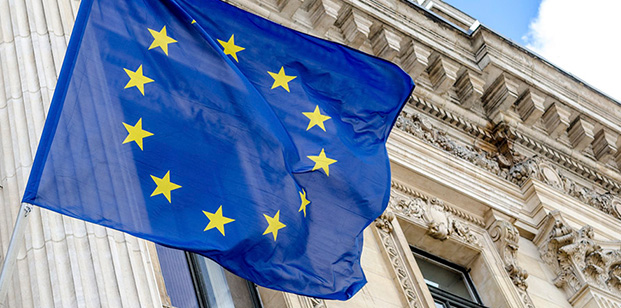January 2018
The EU outlined its requirements for the UK during the post-Brexit transition period that will take place from March 2019 to the end of 2020. The UK is expected to continue to abide by the EU’s regulations, but will not be allowed to take part in the decision-making process. Free movement will have to continue and the UK will not be allowed to implement new international trade deals without agreement from the EU.
- The EBA launched its 2018 EU-wide stress tests.
- Coalition talks restarted in Germany
- The Eurogroup commended Greece for its successful implementation of reforms
To view the series of market updates through January, click here
Economic growth in the eurozone accelerated during January to reach its highest level for almost 12 years, according to IHS Markit. Expansion was boosted by robust growth in the services sector. Pricing pressures deepened during January, driven up not only by higher energy prices, but also by stronger demand.
“Economic growth in the eurozone accelerated during January”
The eurozone’s economy grew by 2.5% during 2017. The International Monetary Fund (IMF) believes that the global economic outlook is improving, underpinned in part by a strong contribution from Europe. The IMF upgraded its forecast for economic growth in the eurozone, and now expects the euro area’s economy to expand by 2.2% in 2018 and 2% in 2019.
The EU outlined its requirements for the UK during the post-Brexit transition period that will take place from March 2019 to the end of 2020. The UK is expected to continue to abide by the EU’s regulations, but will not be allowed to take part in the decision-making process. Free movement will have to continue and the UK will not be allowed to implement new international trade deals without agreement from the EU. European Council President Donald Tusk urged the UK to reconsider Brexit, warning: “If the UK government sticks to its decision to leave, Brexit will become a reality – with all its negative consequences – in March next year”.
The European Banking Authority (EBA) launched its 2018 EU-wide stress tests. The IMF described the tests as “an important step in assessing … the current strategy for dealing with Greece’s exceptionally high level of non-performing loans and assuring the soundness of the banking system”. Whilst acknowledging that Greece has made “significant progress” in strengthening the governance of its banks, the European Central Bank (ECB) highlighted Greek banks’ high proportion of NPEs (non-performing exposures), which equate to 45% of their total exposures.
During January, the Eurogroup commended Greece for its successful implementation of reforms and said that fresh loans totalling €6.7 billion would only be disbursed once all prescribed actions have been delivered. The IMF continued to urge Greece’s international creditors to consider debt relief in order to allow Greece to “embark on a sustained recovery”.
In Germany, investor sentiment was cheered by preliminary coalition talks between Chancellor Angela Merkel’s CDU/CSU Party and the Social Democrat Party. The Dax Index rose by 2.1% during January, whereas France’s benchmark CAC 40 Index climbed by 3.2%.
A version of this and other market briefings are available to use in our newsletter builder feature. Click here









